- Home
- slideshows
- miscellaneous
- I flew in a seaplane for the first time, and I'd say it's easily the most fun way to fly
I flew in a seaplane for the first time, and I'd say it's easily the most fun way to fly
My wife and I landed at Malé after a 90-minute flight from Sri Lanka, and disembarked onto the tarmac. We were next to the terminal building, so we were able to walk right over instead of getting on a bus.

Once we were through customs, we found a representative from our resort, who brought us to a dedicated seaplane check-in area.
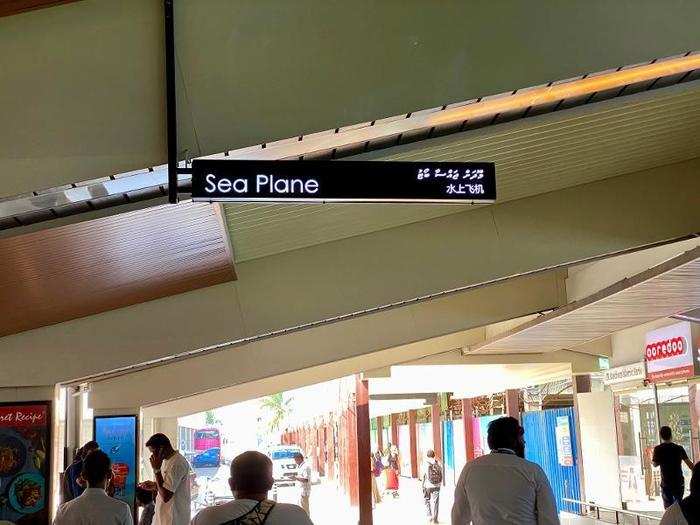
Our hotel representative checked us in, while the staff for the seaplane operator — Trans Maldivian Airways — weighed our bags.
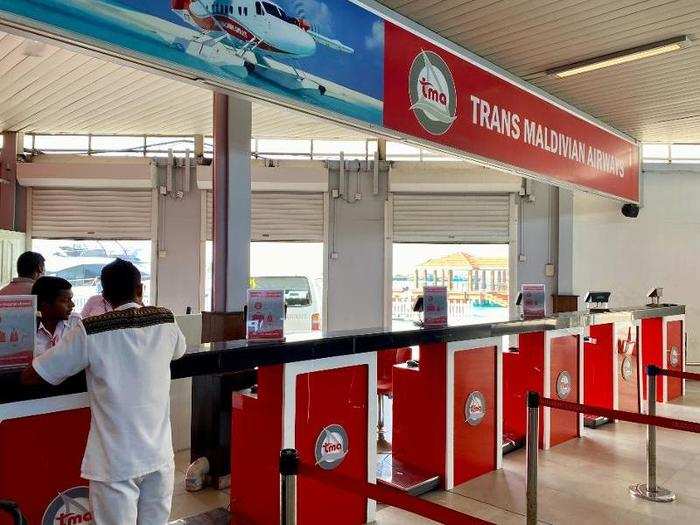
There's a strict weight limit for bags, since the planes are so small and it's important to keep them balanced and stay below weight limits. If your luggage is above weight, you can pay an excess baggage fee — it's fairly inexpensive — but if your plane is full and bags are too overweight, there's a chance the airline may have to deliver your luggage to you at the hotel on a later flight.
The seaplane terminal at Malé airport is separate from the main terminal building, so you'll need to take a shuttle to get there — it's a quick 5- to 10-minute drive.
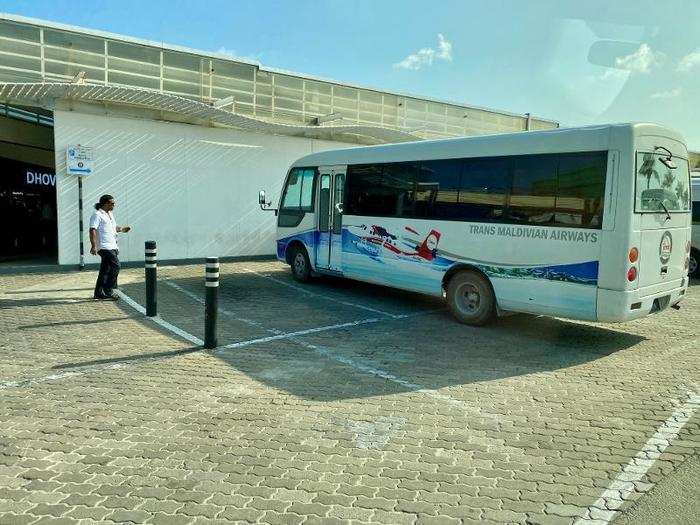
Trans Maldivian Airways operates with a different schedule each day, based on how many people are going to and coming from each resort. We were scheduled on a flight about 90 minutes later, so we had some time to wait.
Many of the resorts have lounges near the seaplane terminal where passengers can wait until their flight — ours was specious and fairly empty, with just one other couple in transit.
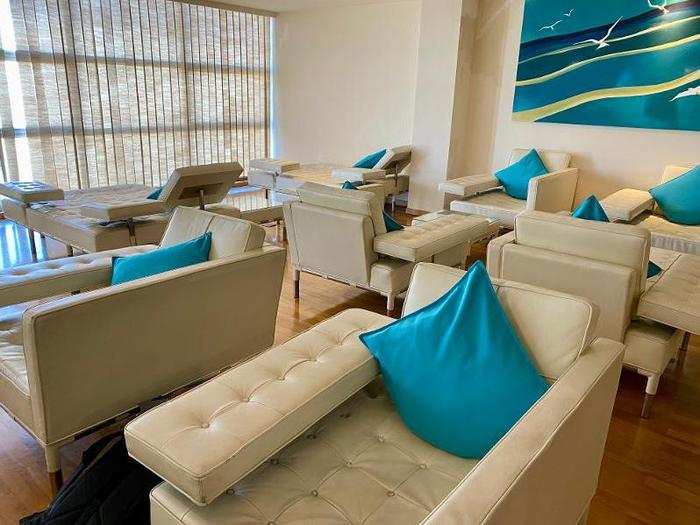
The lounge had an outer deck where you could watch the planes coming and going.
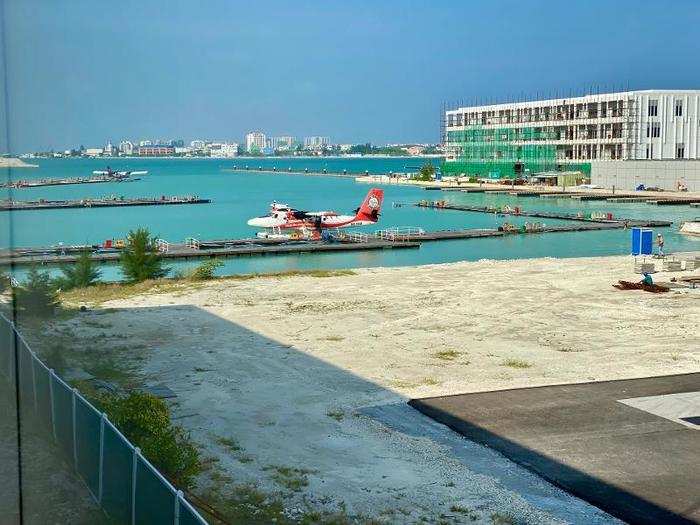
We took a van ride to the main seaplane terminal shortly before our flight ...
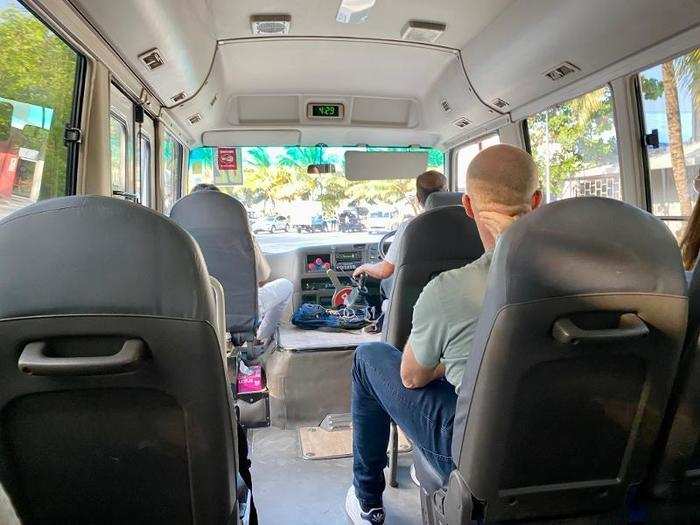
... and waited to board in the single gate area.
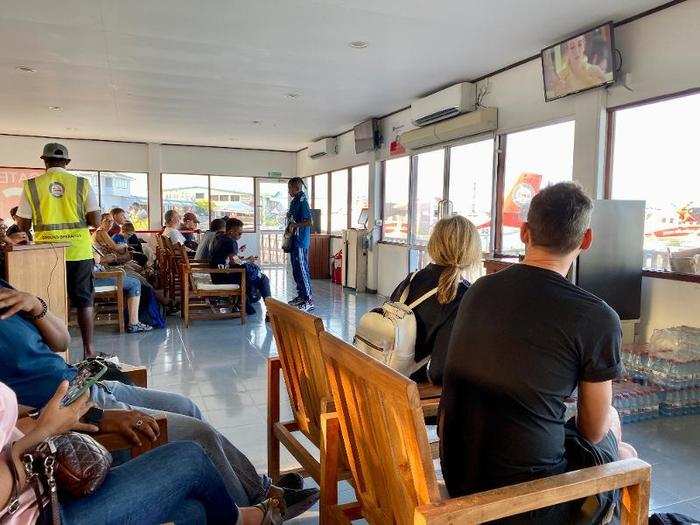
Our hotel was called, so we made our way to the docks.
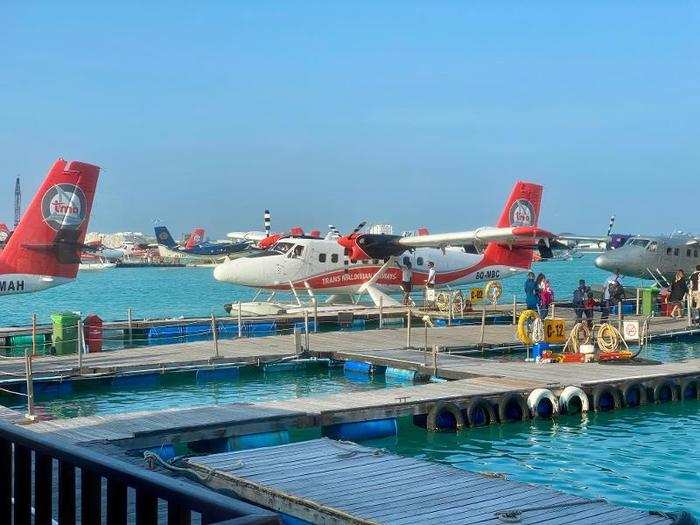
It was a little chaotic, mostly just because the propellers were very loud as planes came and went.
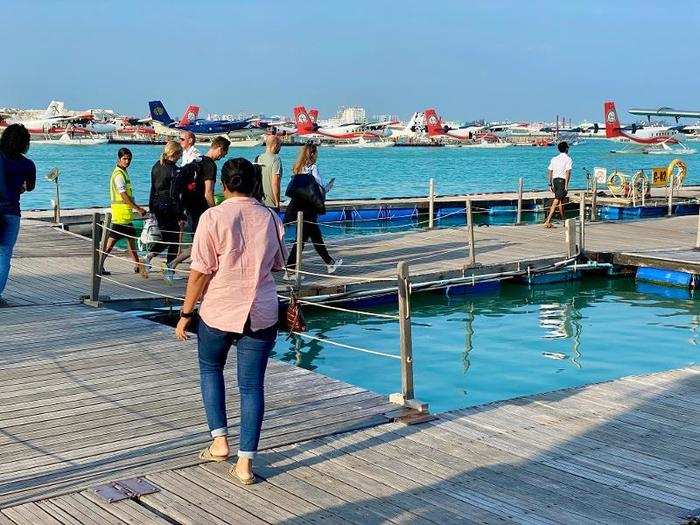
The airline staff member led us to our plane, and waited patiently while we all took photos.
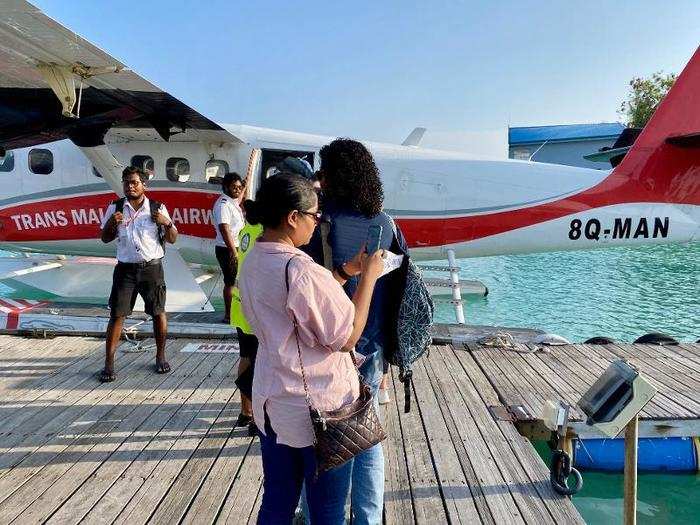
We boarded through the aft door, climbing up a small set of steps on one plane's pontoons.
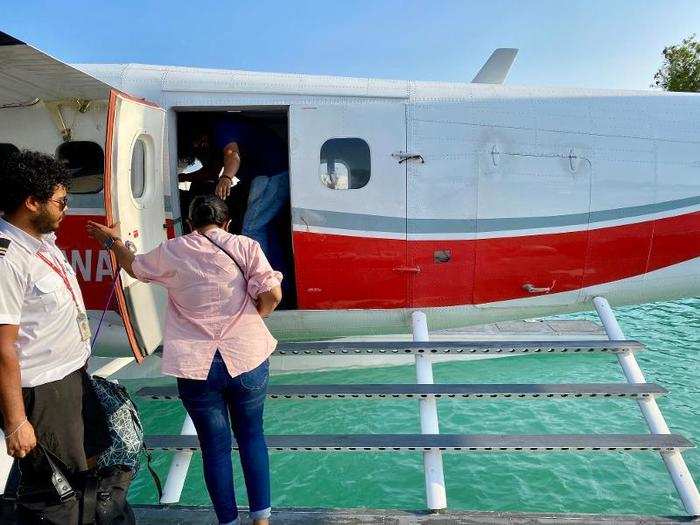
It's a tight fit inside the cabin, with about five rows in a 1-2 configuration. There are no assigned seats, so it's first-come, first-served.
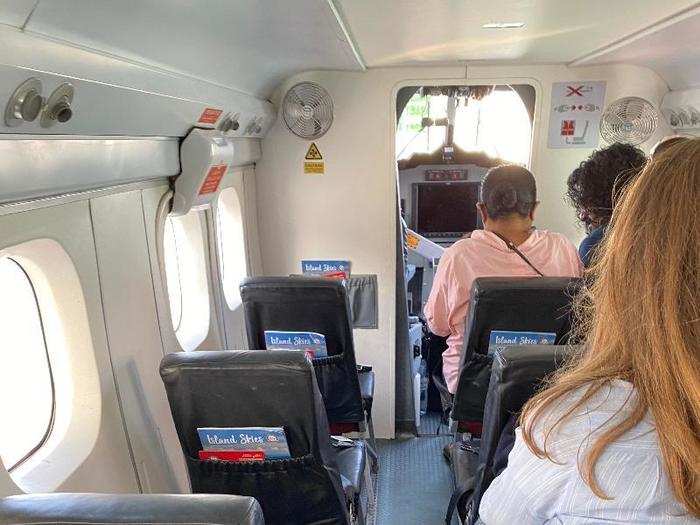
The front two rows are the best, since you can see out the windows without being completely blocked by the pontoons and engines.
The seats are on the small side ...
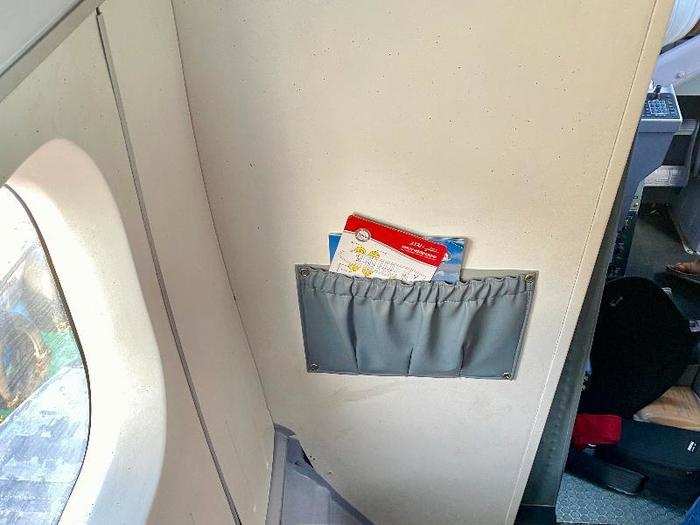
... and there isn't much legroom, but it's a short ride so it's definitely comfortable enough.
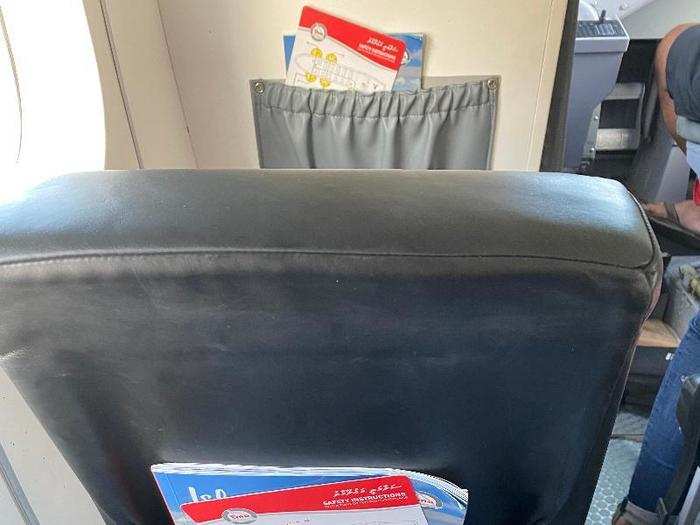
We waited a few minutes while the crew made sure all of the luggage was secure.
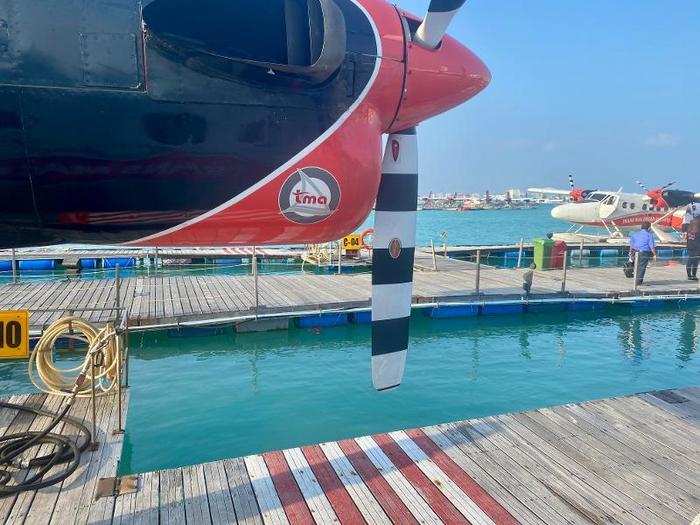
Then the one flight attendant came by to give us a quick safety briefing.
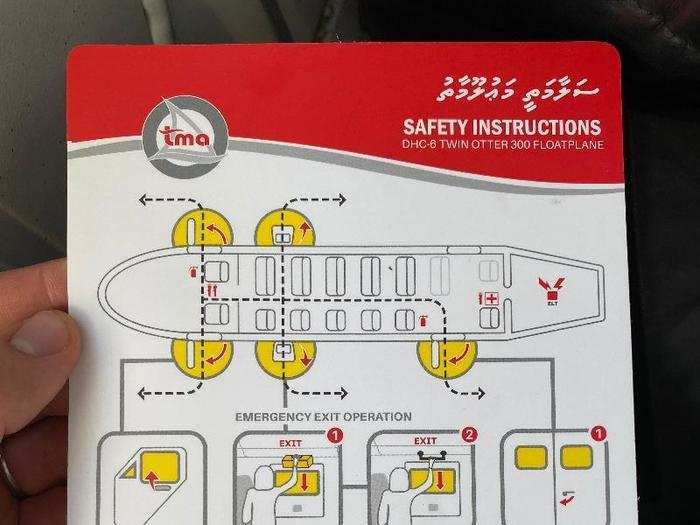
It was hot inside the plane as we waited to take off, although once the engines started up, fans at the front of the cabin started working.
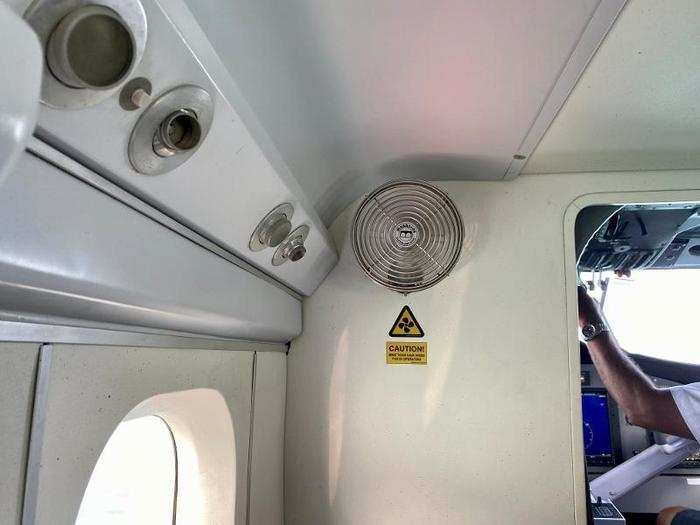
One of the cool things about the short hops on Trans Maldivian is that there's no cockpit door. If you're so inclined, you can watch the pilots throughout the flight (although you'll want to sit close to the front).
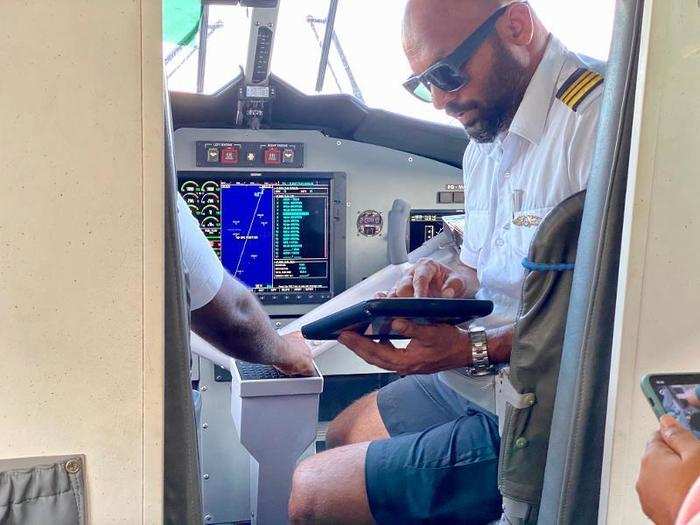
The pilots also wear shorts and flip-flops — one more sign that this isn't a normal airplane. After a few minutes, they started up the engines ...
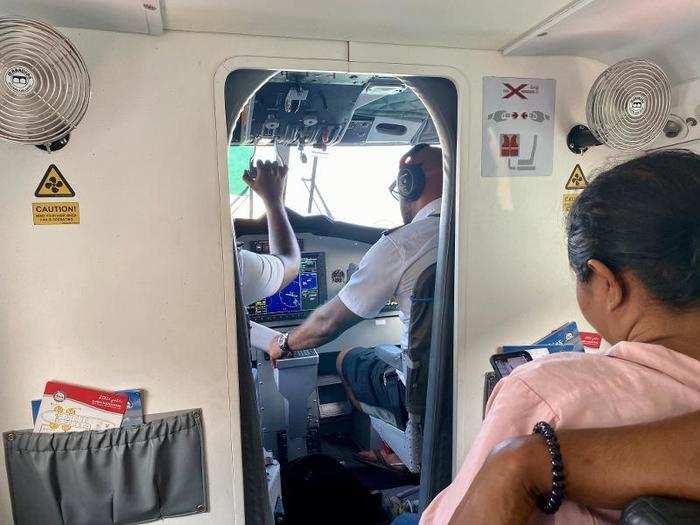
... and our flight attendant pushed us away from the dock before hopping on board and shutting the door.
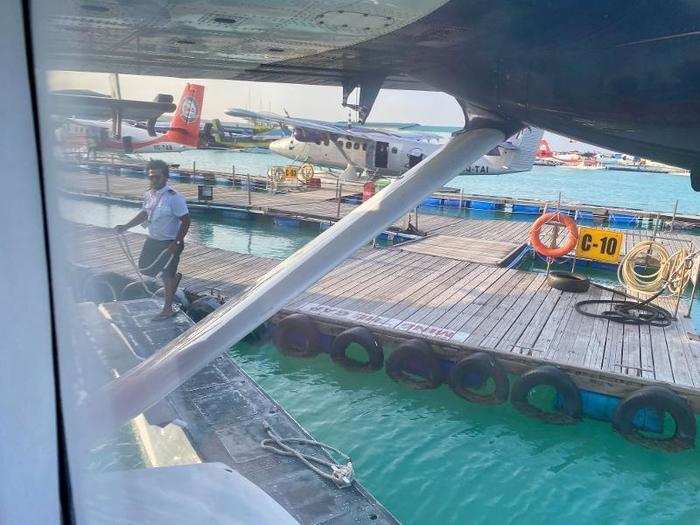
We taxied away from the dock, which was a weird feeling. It definitely felt like being on a plane, between the cabin and views, but the motion was more boat-like — we bobbed on the water with currents and waves.
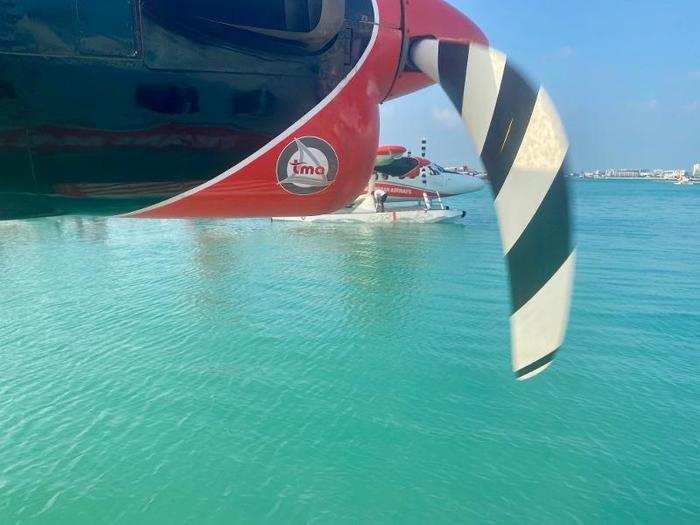
We got into position for the watery "runway," which was marked with buoys.
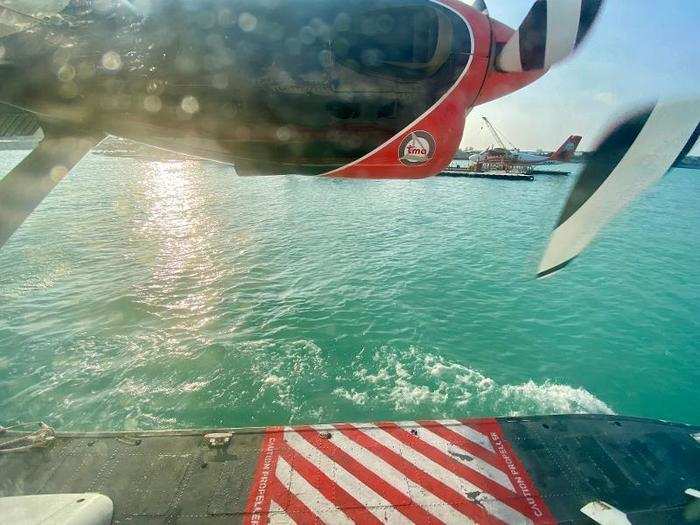
After a quick pause ...
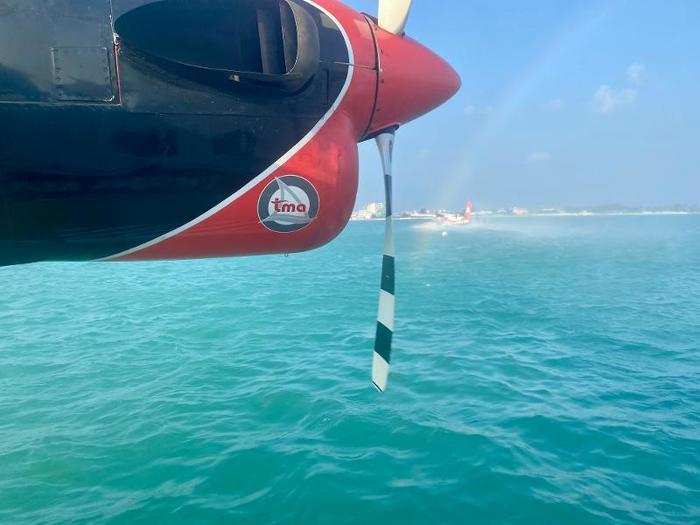
... the pilots powered up the thrust ...
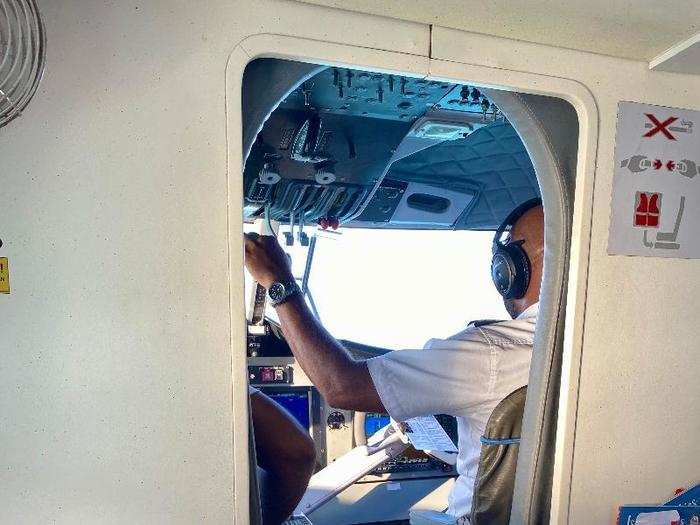
... and we began our take-off roll.
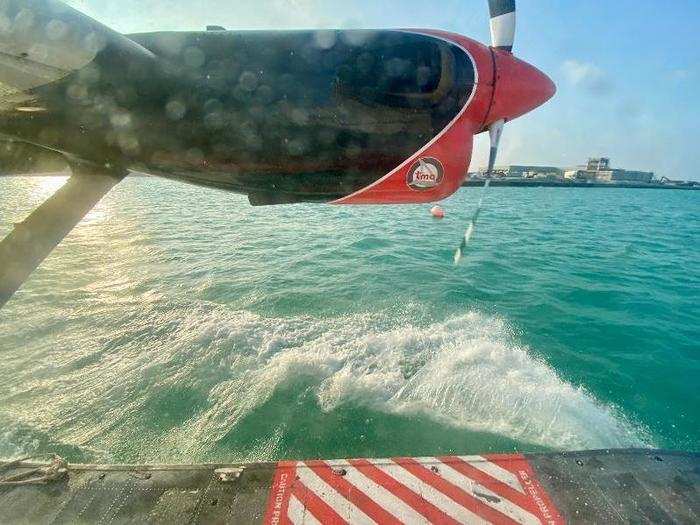
Going at takeoff speed was a bizarre experience. It was almost like being in a speedboat, with the nose pitching up and down slightly.
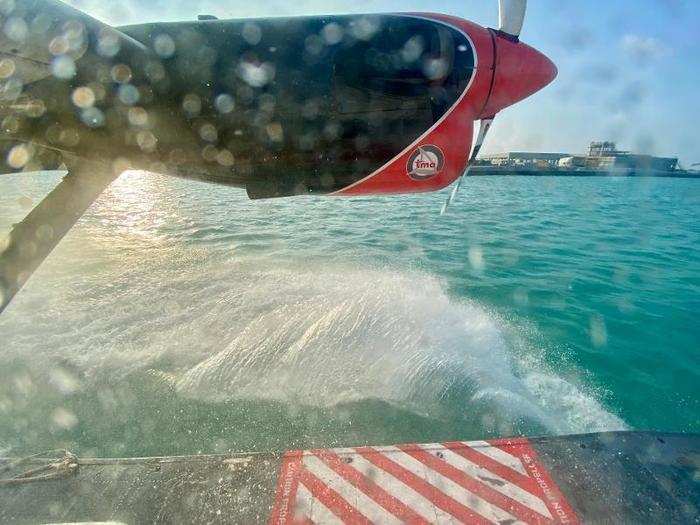
After what felt like a pretty short distance, we left the water and were in the air.
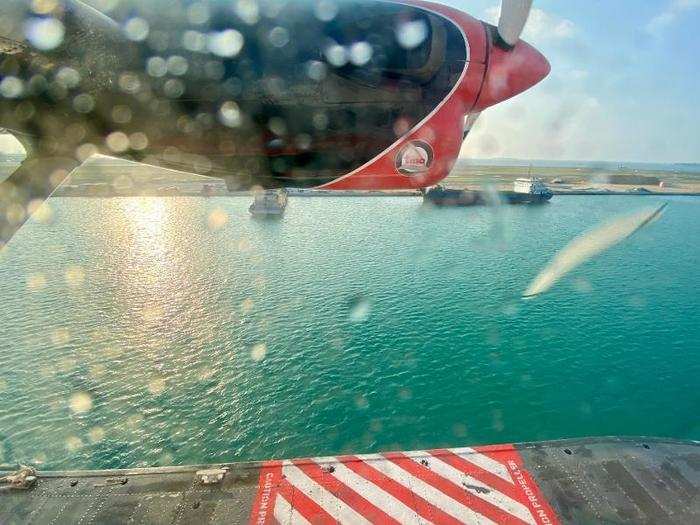
We passed the airport's normal runways as we climbed ...
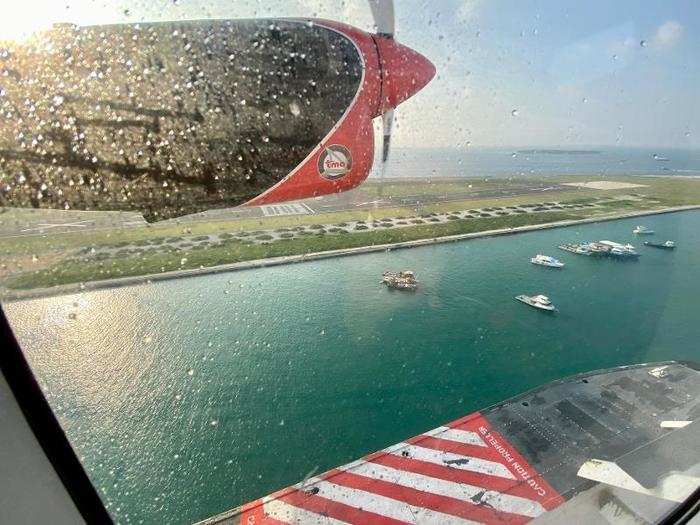
... and after a few minutes ...
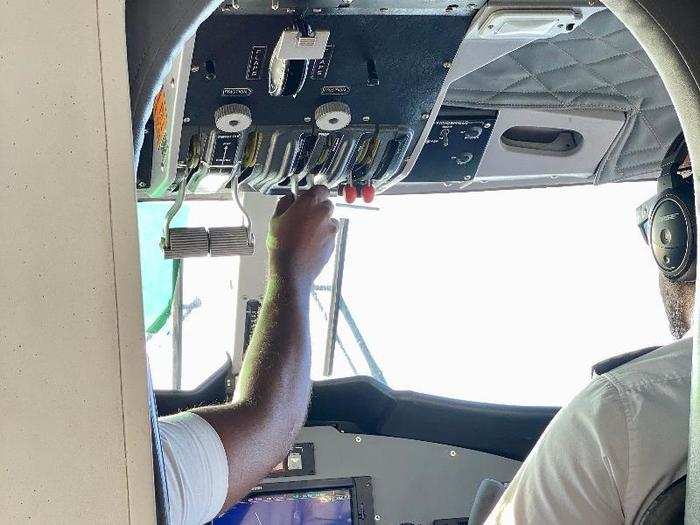
... we were flying normally.
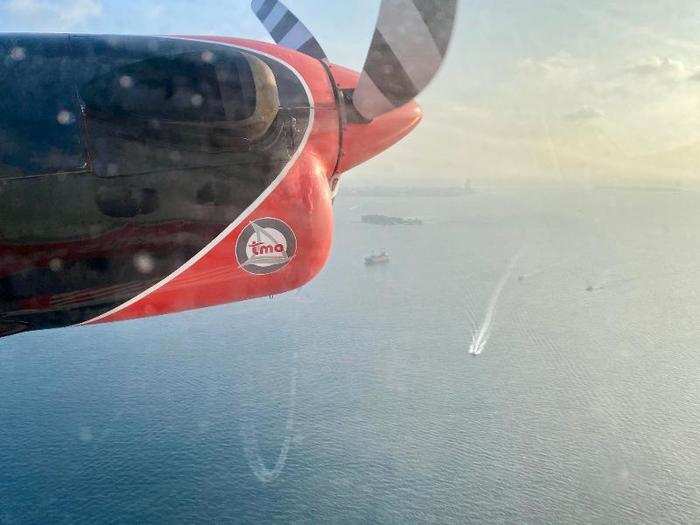
It was incredibly loud, much louder than on a normal jet — there were earplugs available in the gate area, although I ended up not using the pair that I took.
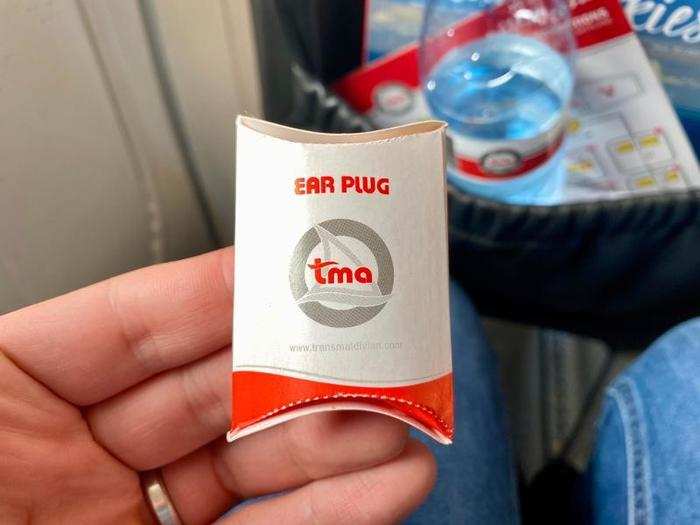
The Twin Otter is not a pressurized airplane, so we didn't fly too high — we stayed at a few thousand feet for the entire flight.
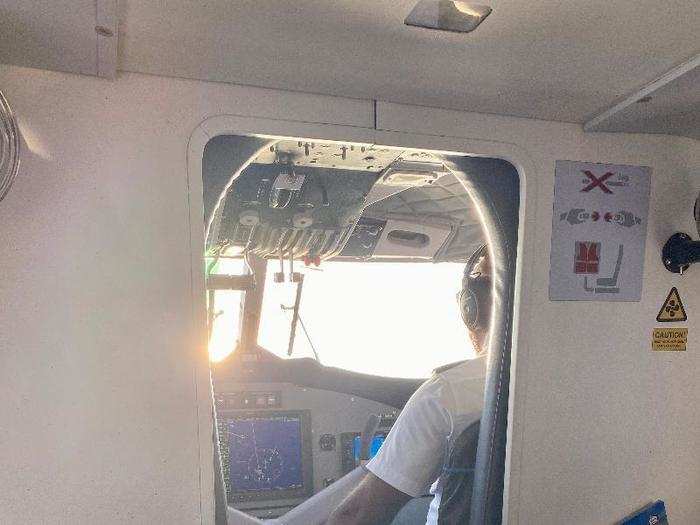
I was on the left side of the plane in the second row, so I had a great view of the sights below us and of the engine.
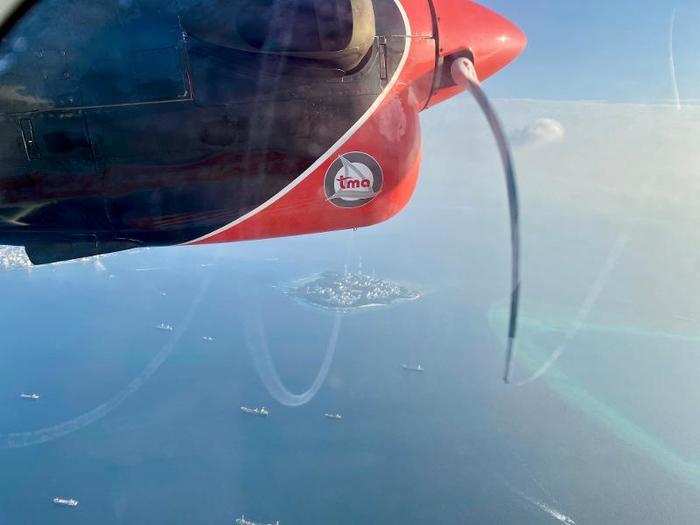
The fun of flying over a tropical archipelago: We flew over a ton of small islands, some of which had resorts. It made it hard to stop staring outside the window — other than to look in the cockpit.
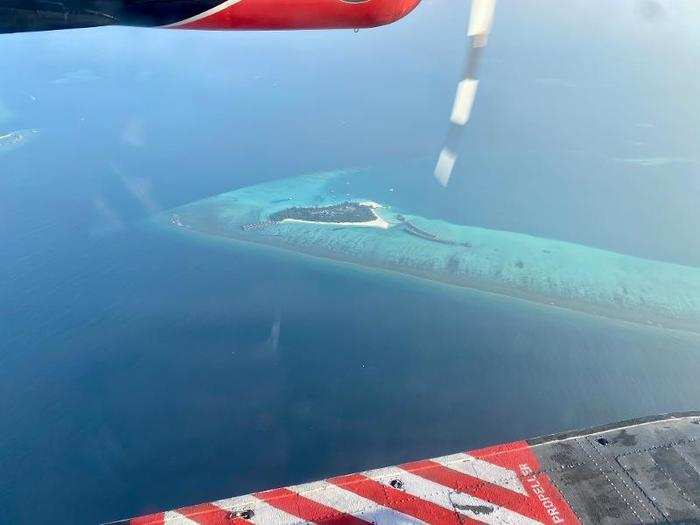
The chairs were vibrating a lot with the engine, but the flight itself was fairly smooth, with just one or two small bumps between the airport and the hotel.
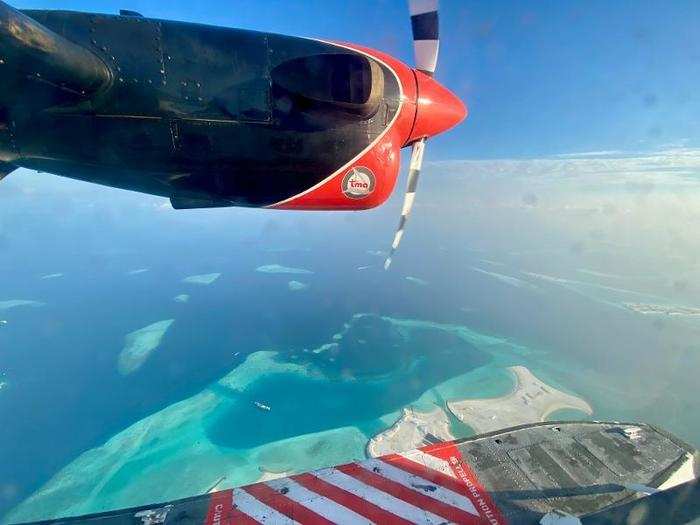
I did manage to peel my eyes away to flip through the airline's in-flight magazine, which is printed quarterly.

There was a fascinating interview with the airline's head of training.
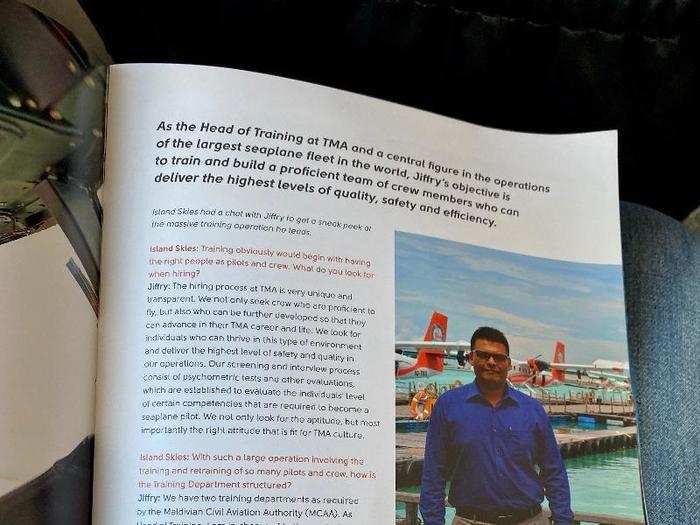
After about 25 minutes, we started to descend.
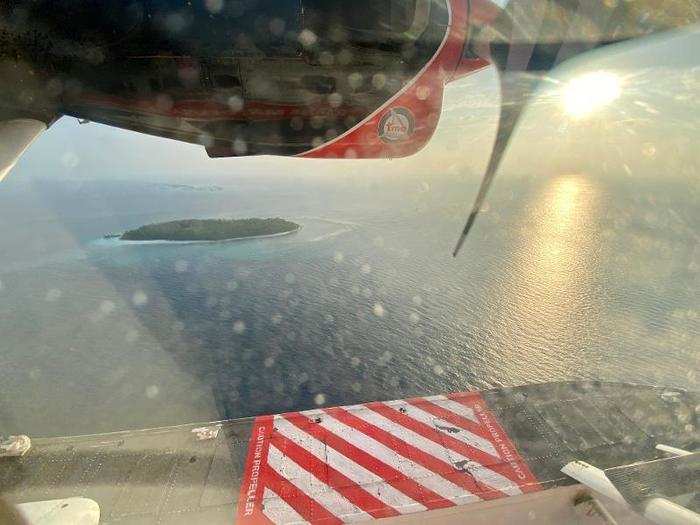
We passed the resort and swung around to the normal landing area ...
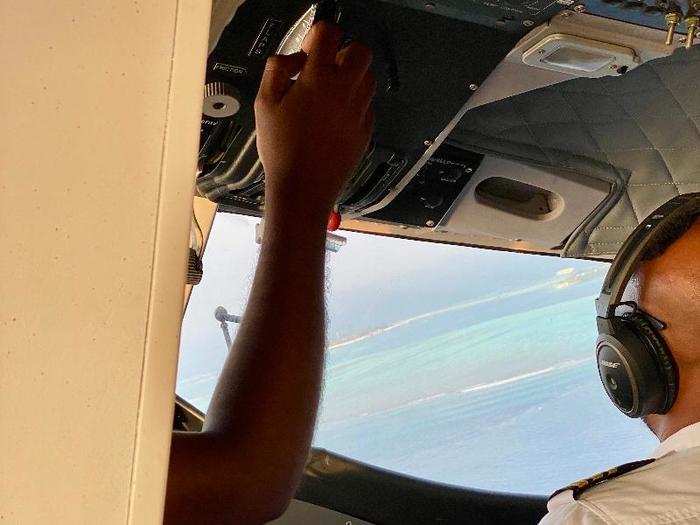
... and after just a few minutes ...
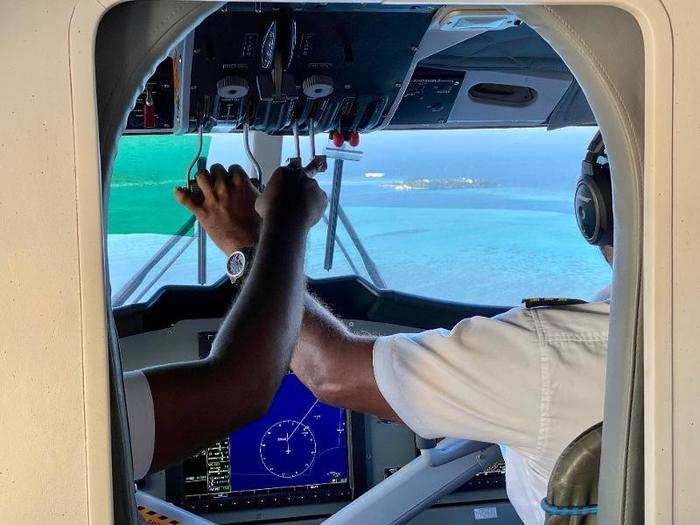
... and what felt like a nice steep descent ...
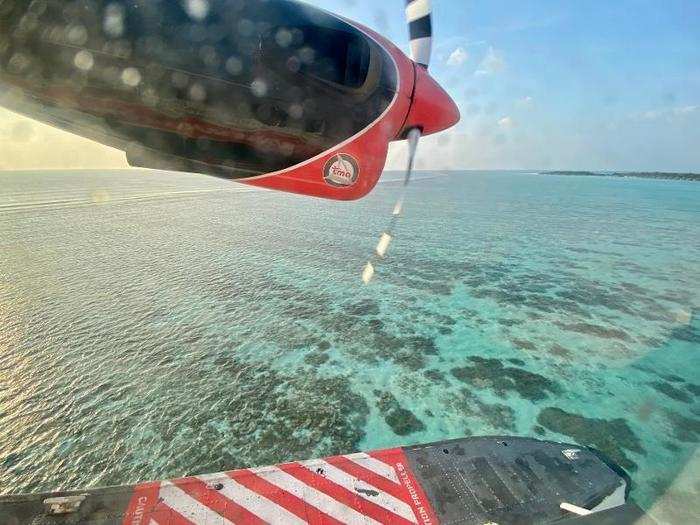
... we touched down.
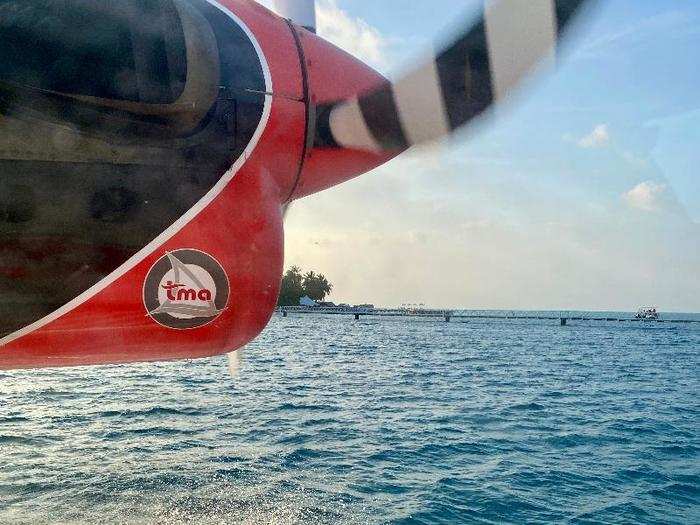
I expected the landing to feel a bit jolting and that we'd decelerate faster, but it was actually incredibly smooth. I barely even felt when we touched the water.
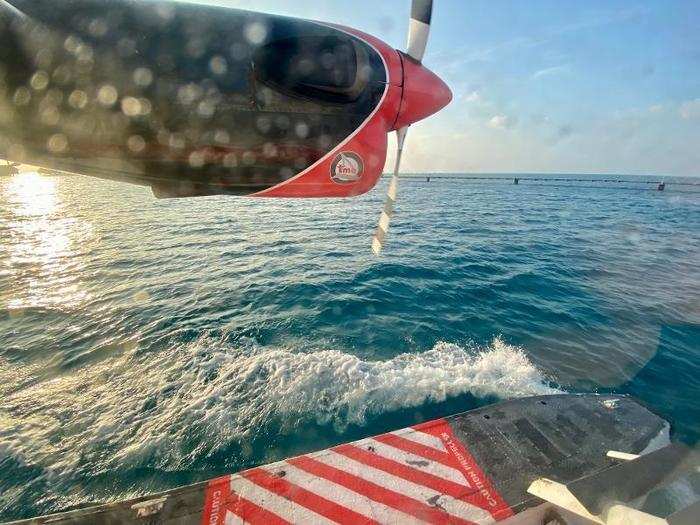
We taxied over to a dedicated pier for seaplane arrivals and departures ...
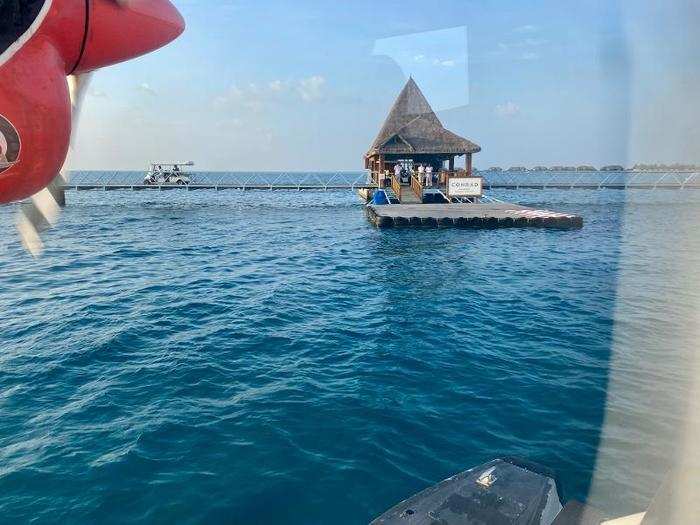
... where we docked, and were helped off of the plane by resort staff members.
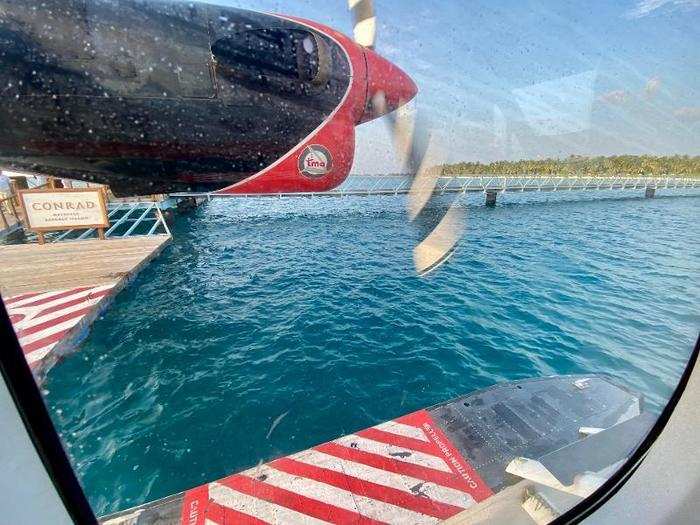
After just a few moments, the pilots started up the engines again ...
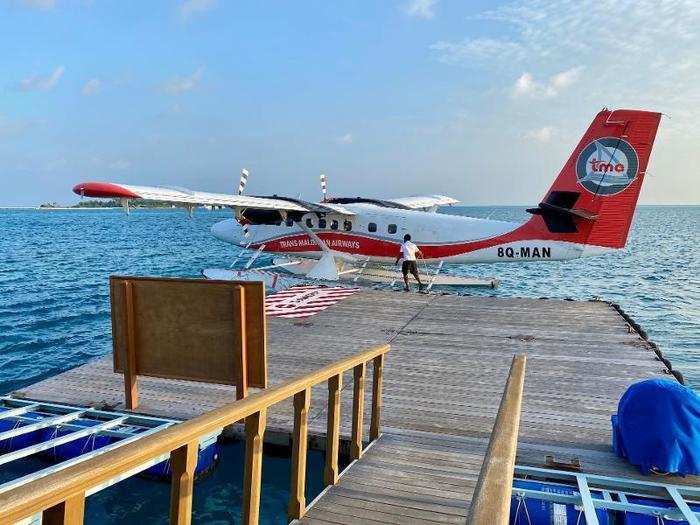
... pushed back ...
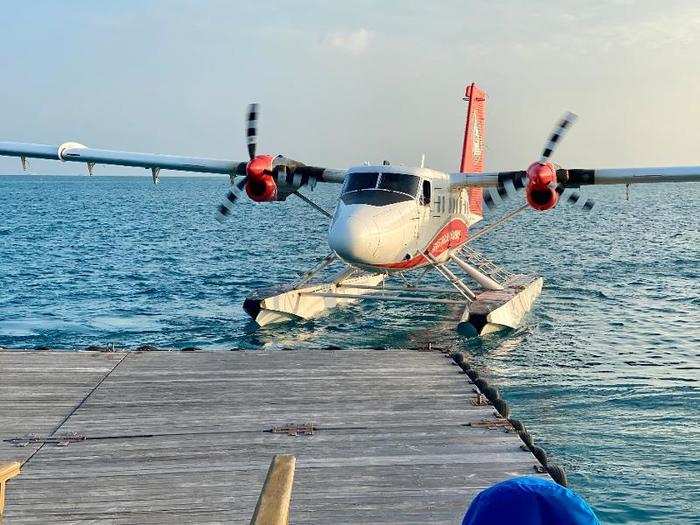
... and took off to drop passengers off at the next hotel.
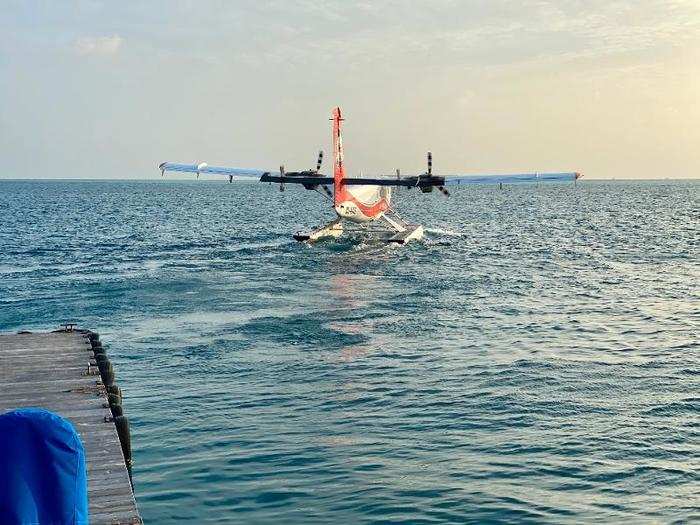
Our flight back to Malé was similar, except we got to watch our plane approach and land at the resort.
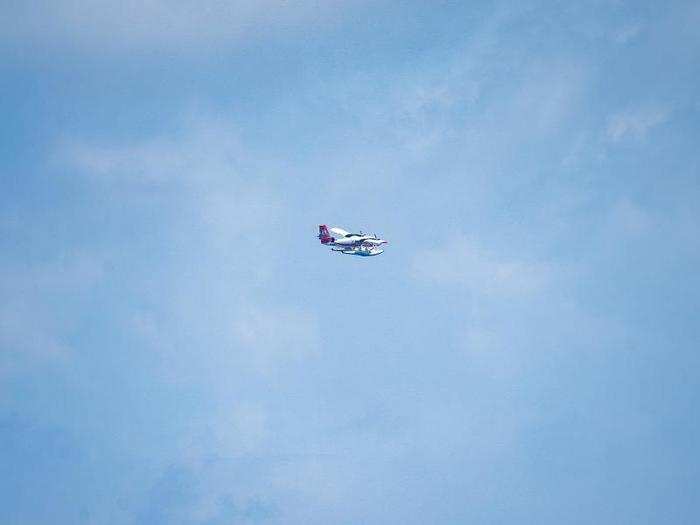
It was seriously fun to see it coming in ...
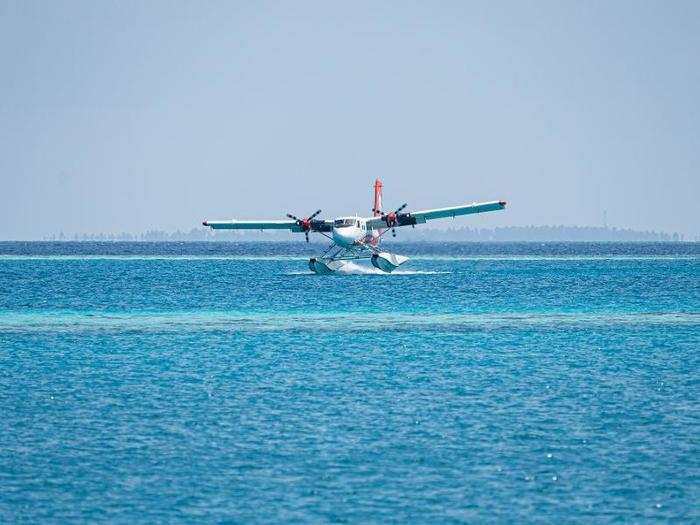
... touching down ...
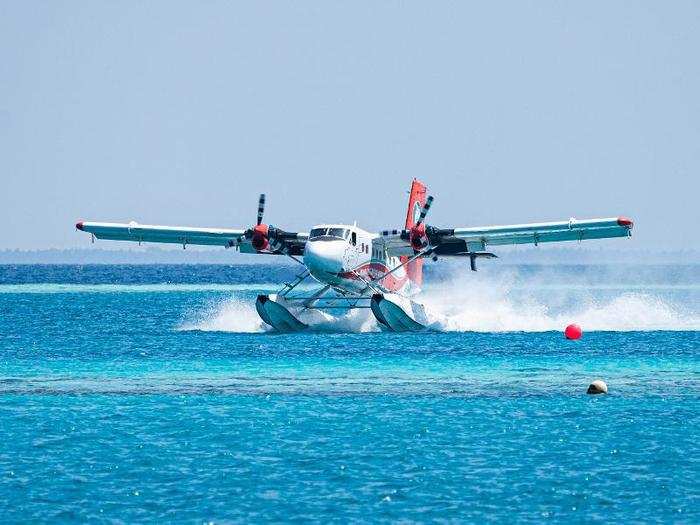
... and taxiing over.
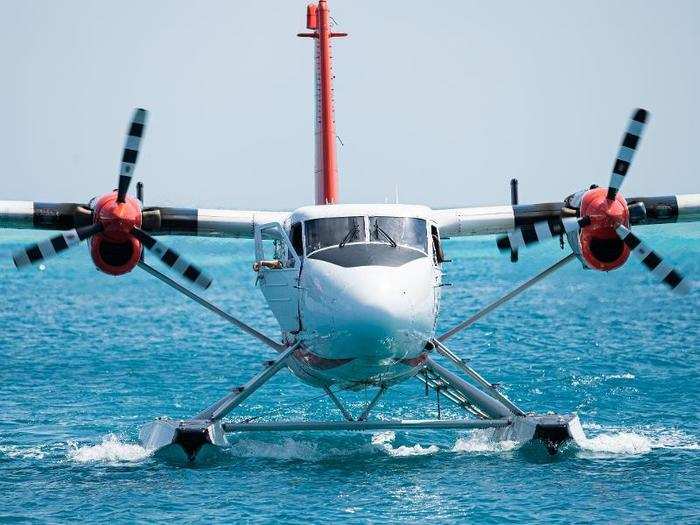
The plane docked, resort employees helped the flight attendant load luggage ...
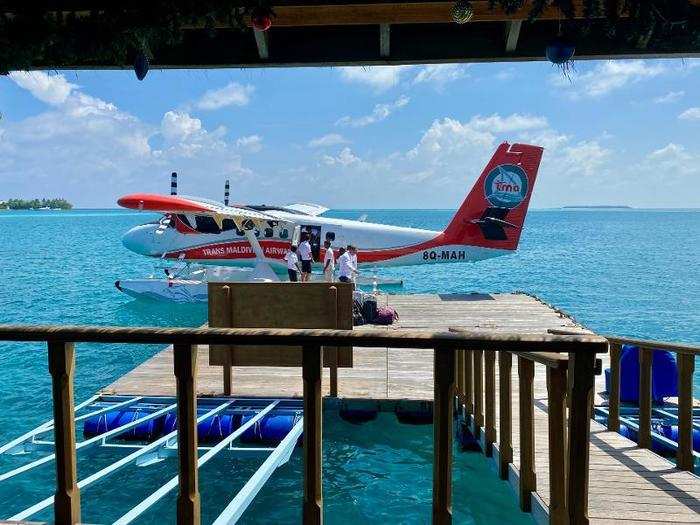
... and we climbed aboard. The whole thing couldn't have taken 10 minutes.
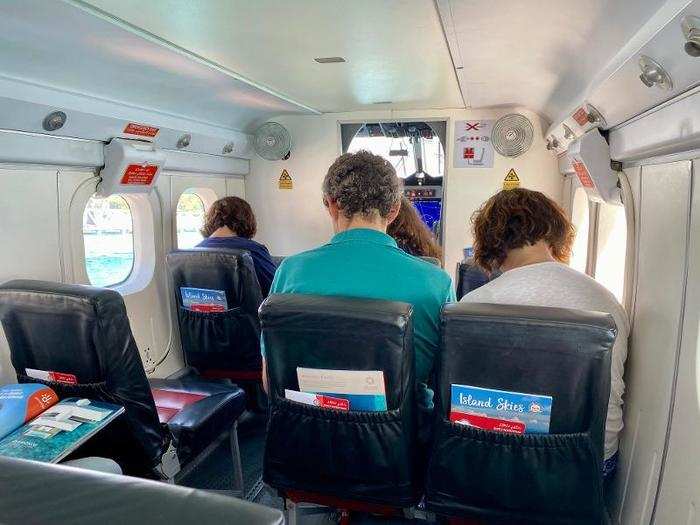
This time we were in the front row, seated together on the right side of the cabin.
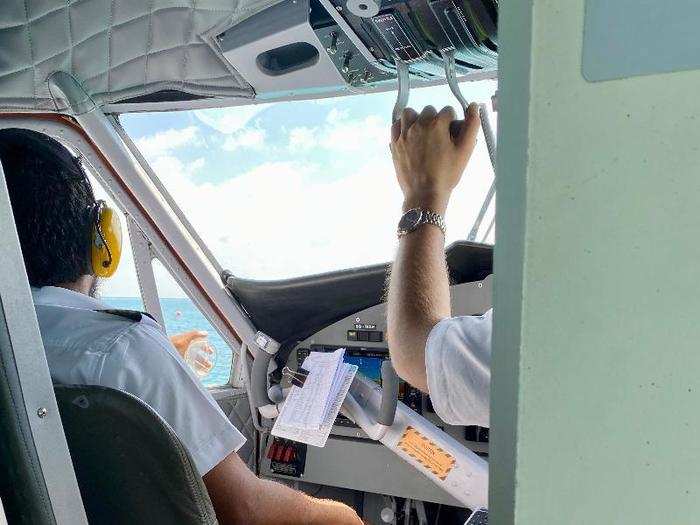
Takeoff was quick, once we'd moved away from the pier.
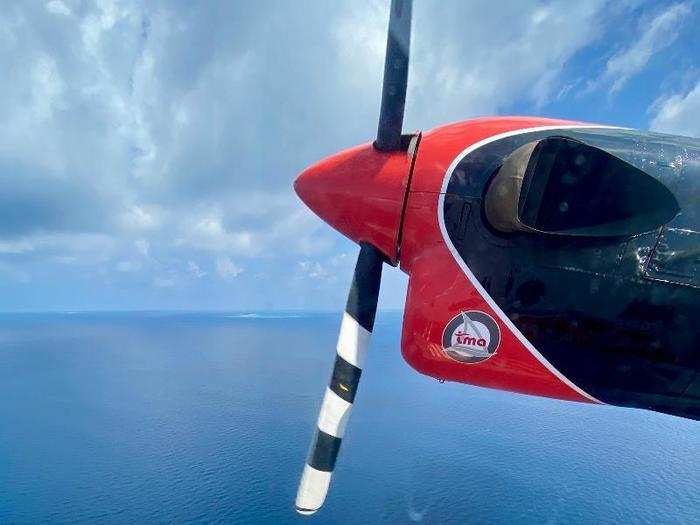
This time, I had an even better view of the cockpit.
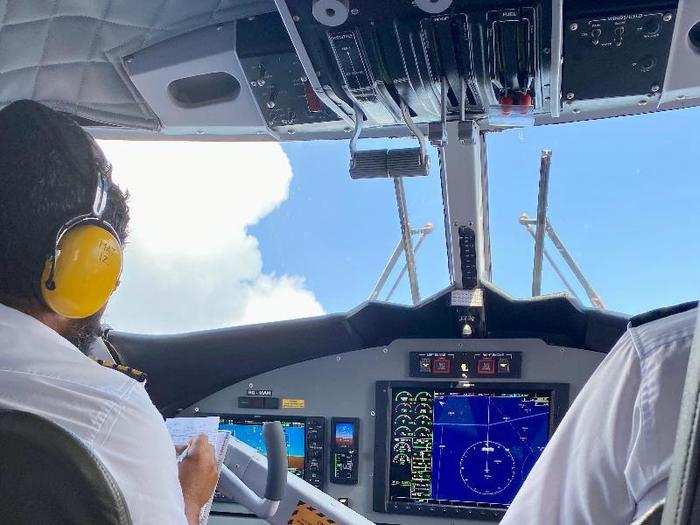
I also noticed air-sickness bags at each seat, although thankfully no one on our flight needed them.
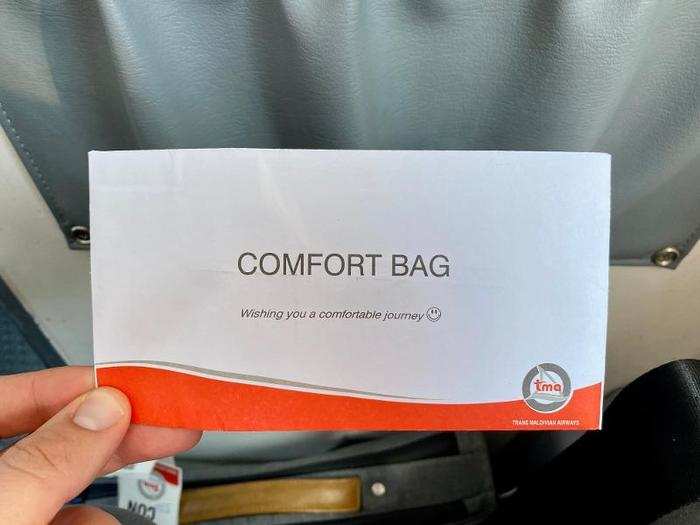
The flight was even smoother this time, and the seats actually vibrated a little less.
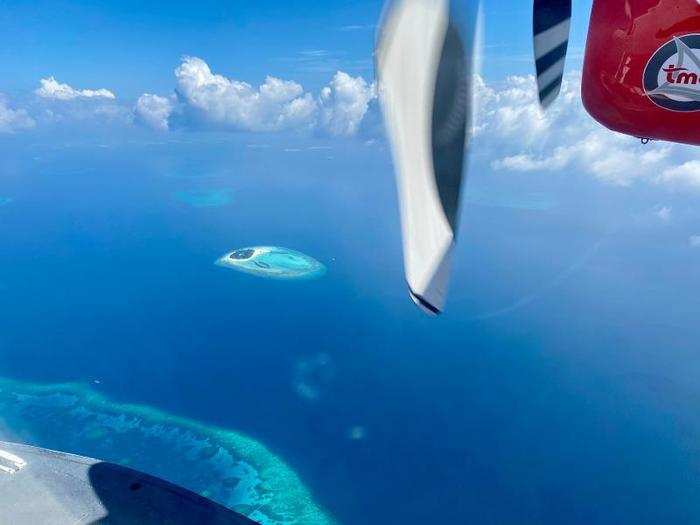
I watched as we got ready to make our approach into Malé ...
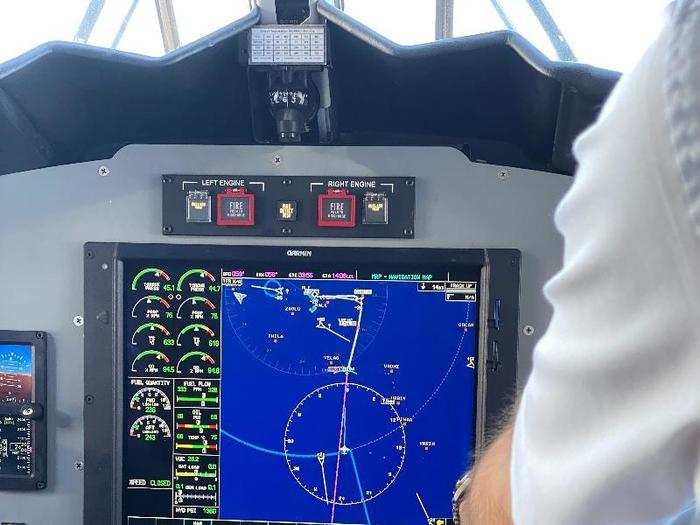
... and soon enough, we were turning to line up for landing.
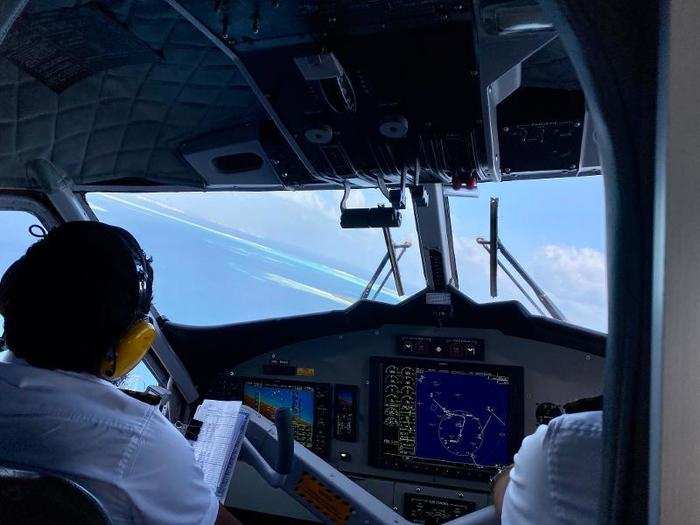
Just a few minutes later, we were on the ground — well, on the water.
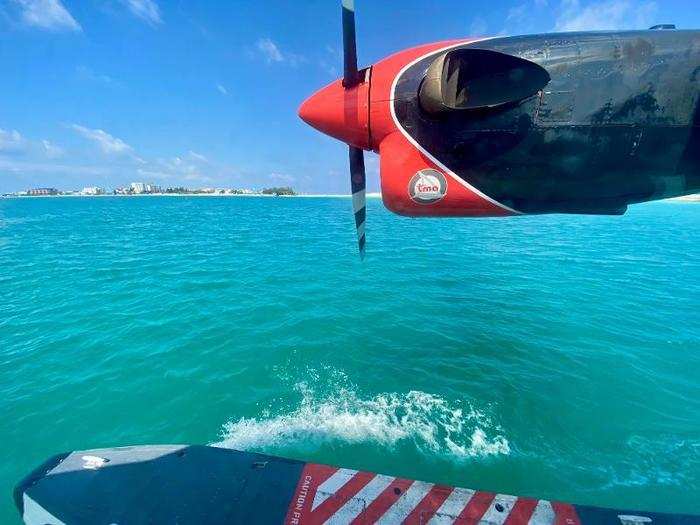
We walked onto the dock and up to the seaplane terminal building, where airline staff members brought our luggage a few minutes later.
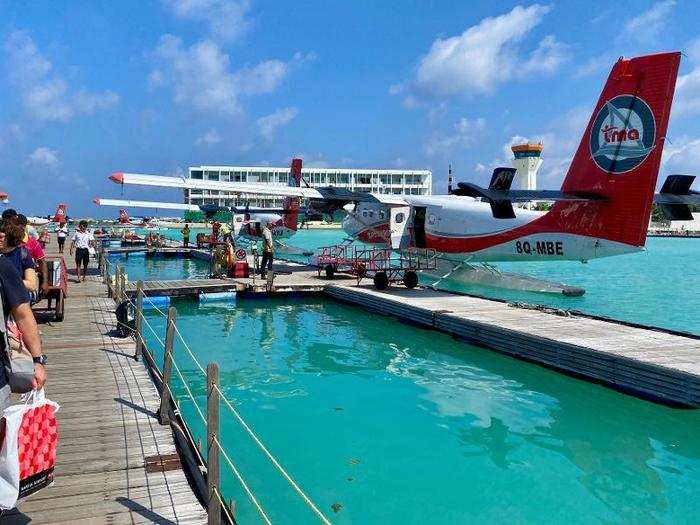
After one last ride in a shuttle bus, we were at the main terminal, ready to check in for the long flight home.
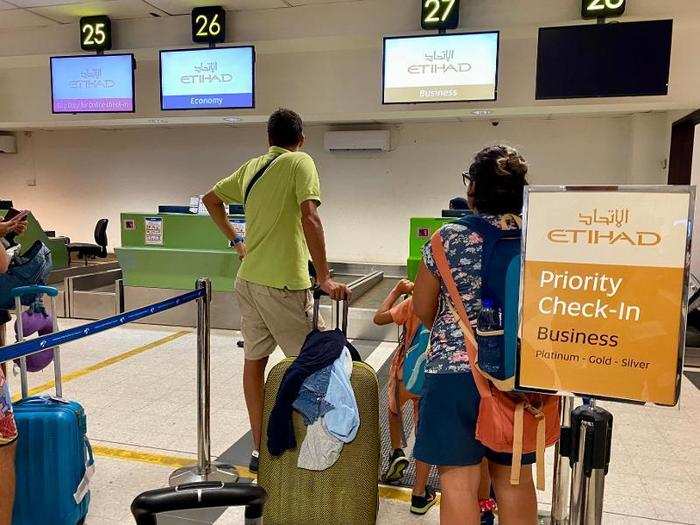
Popular Right Now
Popular Keywords
Advertisement